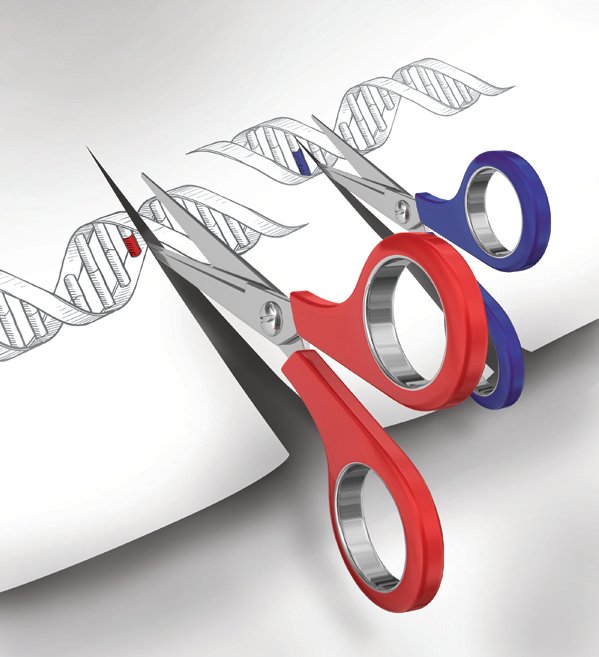Use CRISPR to heal illnesses, not social problems
The past few years, there's been much debate regarding the use of the genome editing technology known as CRISPR. While it's extremely accurate, and the technology have matured a great deal, there are of course discussions on if, and in which cases, it ethical to be using such genome editing tools.
Use CRISPR to heal illnesses, not social problems
There are a number of good arguments on both sides of the discussion, and I won't go into all of these, but I'd like to present a good point made by the well known Norwegian philosopher Aksel Braanen Sterri: It's ethical to use technologies such as CRISPR to prevent severe illnesses, both for the individual as well as for future generations. It's not ethical, however, to use CRISPR to "modify" individual to fit society norms.
An example that was made in the discussion regarding the latter point, was that it's not ethical to, if it was even possible, modify the genome to remove the ones that make people gay. Even though it may be extremely difficult for gay people in strict say Christian or Muslim societies, to live fulfilling lives while being true to themselves and their own sexuality, the difficulties they are experiencing are social problems, not individual problems. It's the norm created by the society that's causing the problems, not the individual person itself. So these cases, i.e. difficulties caused by the community or society, must not be mitigated by modifying the individuals to better fit in.
Other concerns
Of course there may be reasons not to use CRISPR, but I think Mr. Sterri made an interesting distinction between ethical and non-ethical uses cases for using it.
Based on the limited knowledge I have on the subject, I do agree with Mr. Sterri's reasoning. But as always, I'm open to change mind if I'm presented with convincing arguments.

I am concerned about the idea to use it to modify mosquitos to not carry certain diseases like malaria. Like, maybe it would work and we'd be rid of malaria and hooray! But it's a really new technology and there is no going back once you've released a modified organism into the wild like that - especially with how fast it would take over in mosquito populations. If something goes wrong, it could damage the whole ecosysyem (even more than we already have). Ntm, I just saw a report about - I'm liable to misspell this - encephalopy? - the disease everyone has been freaking out about pregnant women getting bit by a mosquito carrying it because it deforms a baby's brain - can possibly cure cancer. They are looking into giving it to cancer patients on purpose, because unless you're pregnant, it's a mild thing and it could kill cancer. What if we had desteoyed it already via the crispr mosquitos? There are just so many unknown variables.
That's some very valid concerns. There are so many factors to take into consideration, both known as well as unknown. Like you say, we could end up curing an illness which in the future might be the cure for something else.
This just shows how important it is to have ethics boards steering the development and implementation of these tools, even if such boards might not see these consequences before it's too late.
I'm hoping that we'll do more good that bad with this technology. It has such a great potential, unfortunately both negative and positive.
@protoken
CRISPR is anything but "extremely accurate" the technology is full of dangerous possibilities.
“What is CRISPR-Cas.” http://www.yourgenome.org/facts/what-is-crispr-cas9.
Begley, Sharon, “Do CRISPR enthusiasts have their head in the sand about the safety of gene editing?” Stat, https://www.statnews.com/2016/07/18/crispr-off-target-effects/July 18, 2016.
https://www.drugtargetreview.com/news/23510/crispr-gene-editing-mutations/
https://steemit.com/crispr/@venomnymous/gene-edited-mutant-ants-create-chaotic-colony
My understanding is that the technology is extremely accurate, in that it's possible to cut and paste genes extremely precisely. But as you point out, it's a potentially dangerous tools, as we don't have the knowledge to see all the consequences using this tool may have. So we can cut and paste genes, but end up with a quite different result than expected in the long term.
So we'll need to use this tool with great care, or perhaps not use it at all. Thanks for the links, I'll take a look at them.
Yeah I'm particularly concerned with CRISPR since DARPA just recently gave them a $65 million dollar boost.
And we all know what darpa is all about.
No problem, anytime.